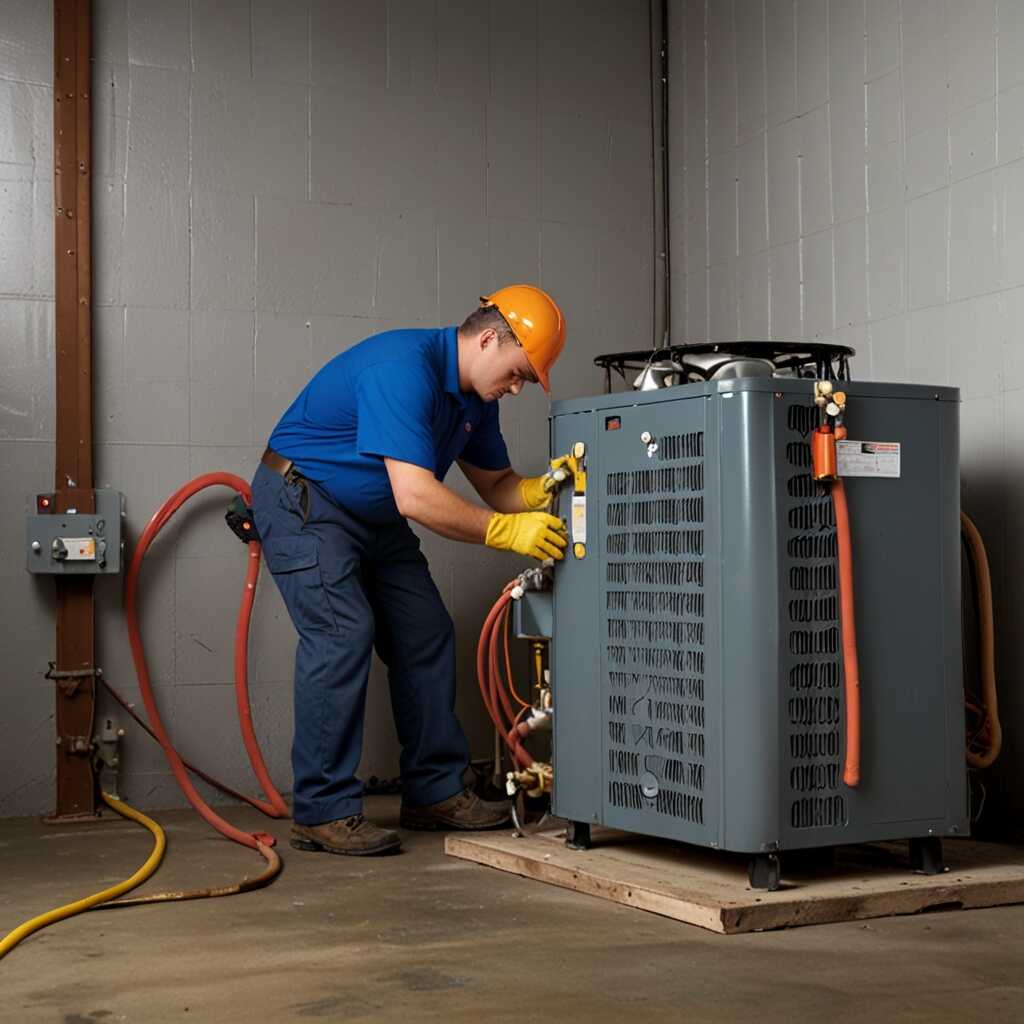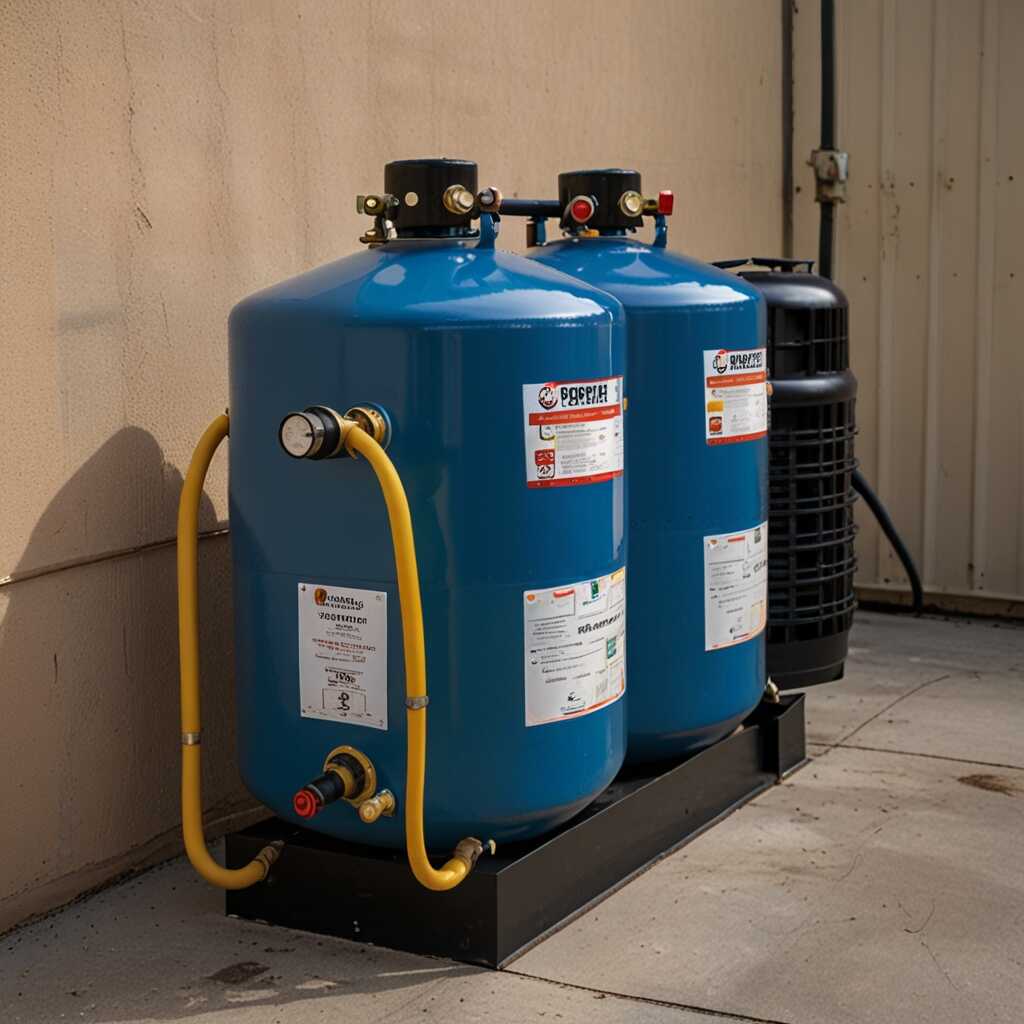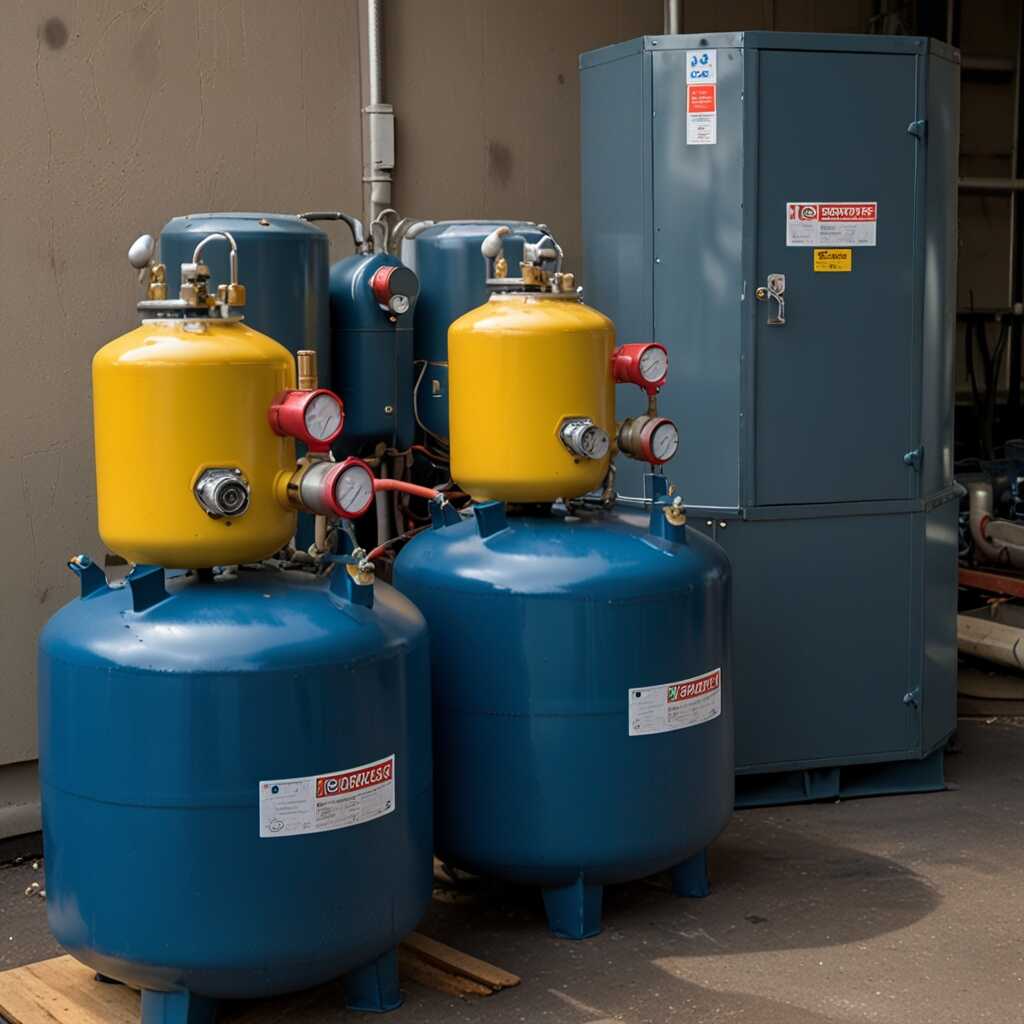Understanding why marine-grade refrigerant recovery machines resist saltwater corrosion is essential for HVAC professionals. This resistance is vital for ensuring longevity and reliability in harsh marine environments. Marine-grade machines use specialized materials and coatings that prevent corrosion caused by saltwater exposure. At Refrigerant Recovery Pro, we offer insights and guidance on selecting the best equipment tailored for marine applications, helping specialists navigate these unique challenges.
Introduction to Corrosion and Its Challenges in Marine Environments
Corrosion is a natural process that deteriorates materials due to chemical reactions with their environment. In marine settings, this is primarily caused by the interaction of saltwater with metals and alloys. Corrosion can lead to significant problems in marine equipment, including refrigerant recovery machines. This degradation reduces equipment effectiveness and reliability, ultimately impacting lifespan. Addressing corrosion is essential. It helps ensure the equipment continues to perform efficiently in hostile marine environments, extending its longevity and reducing maintenance costs.
Types of Marine-Grade Materials for Corrosion Resistance
Many marine-grade materials are highly effective at resisting saltwater corrosion. Stainless steel, aluminum, and specialized coatings are common choices. Stainless steel alloys, especially those with higher nickel and molybdenum content, provide excellent longevity against saltwater exposure. Aluminum, treated with protective coatings, enhances durability significantly. Epoxy and other polymer coatings also improve resistance to saltwater. Each material has its testing designed to verify performance under marine conditions, ensuring that HVAC professionals select the best options for their equipment needs.
Key Features of Marine-Grade Refrigerant Recovery Machines
Marine-grade refrigerant recovery machines are outfitted with specialized materials, such as high-grade aluminum and stainless steel. These materials improve reliability and durability against corrosive saltwater environments. Additionally, manufacturers incorporate protective coatings to enhance corrosion resistance further. Such features include reinforced seals and gaskets designed to prevent moisture ingress. Brands like Refrigerant Recovery Pro ensure their equipment undergoes rigorous reliability testing to meet marine standards. High-quality machines can handle prolonged exposure to saltwater without compromising performance. Typically, these machines can withstand over 600 hours of continuous operation under saltwater conditions, ensuring they deliver reliable refrigerant recovery even in the harshest marine environments.
Understanding Materials for Corrosion Resistance
Marine-grade refrigerant recovery machines utilize materials engineered for maximum corrosion resistance, including marine-grade aluminum and stainless steel. These materials resist pitting and rust when exposed to saltwater, significantly enhancing the machinery’s lifespan. Additionally, coatings such as epoxy paint provide another layer of protection against moisture and corrosive elements. Brands frequently review and test these materials for durability, ensuring that the machines can perform in difficult marine applications, ultimately leading to fewer maintenance costs and improved efficiency. By choosing equipment with these durable, corrosion-resistant features, HVAC professionals can ensure reliable performance and long-term recovery success.

Performance Comparison: Standard vs Marine-Grade Refrigerant Recovery Machines
Marine-grade refrigerant recovery machines exhibit superior reliability when compared to standard models. They are designed to withstand harsh marine environments, including high humidity and corrosive saltwater exposure. Their materials often include marine-grade aluminum or specialized coatings that prevent rust and corrosion. This ensures better performance and a longer lifespan. Standard models may not include such features, leading to increased maintenance costs and reduced operational efficiency. Recent tests show that marine-grade machines can handle conditions that cause standard models to fail in less than two years. Choosing the right machine is essential for cost-effective, reliable operation in marine applications.
Durability Features of Marine-Grade Refrigerant Recovery Machines
Marine-grade refrigerant recovery machines offer impressive durability features designed specifically for marine environments. They typically include reinforced casings and sealed components to prevent saltwater intrusion. This enhances protection against moisture-related damage. Additionally, these machines often use higher-grade materials that resist corrosion and degradation over time. For example, many models feature epoxy coatings that provide an additional layer of protection against saltwater. This makes them reliable for long-term use in maritime conditions. Research indicates that marine-grade machines can maintain operational efficiency even after extensive exposure to saltwater, significantly improving their reliability over standard models.
Key Metrics of Corrosion Resistance in Equipment
- Marine-grade recovery machines typically use aluminum, resistant to saltwater.
- The saltwater spray can initiate corrosion in metal components in just 24 hours.
- Many machines feature protective coatings that can extend lifespan by up to 50%.
- Resistance ratings often exceed ASTM standards for marine environments.
- Maintenance cycles are recommended every six months to ensure optimal performance.
- Higher-quality machines can withstand a salt fog test lasting over 1000 hours.
- Most models operate efficiently within temperature ranges of -5°F to 115°F.

Essential Maintenance Practices for Corrosion Prevention
To enhance the durability of refrigerant recovery machines in marine environments, focus on essential maintenance practices. Regularly inspect components for any signs of saltwater exposure. Rinse machines with fresh water after each use, ensuring no seawater residue remains. Apply corrosion-resistant coatings to vulnerable parts to improve protection against salt. Environmentally, humidity, exposure to salt, and temperature shifts can all necessitate more frequent upkeep. Manufacturers often recommend checking equipment every month, especially in harsher conditions. Integrating these practices helps maintain reliability and performance.
Developing a Regular Inspection Schedule for Marine-Grade Equipment
Creating a regular inspection schedule is critical for maintaining the integrity of marine-grade refrigerant recovery machines. Schedule inspections at least once a month if the equipment operates near saltwater. During these checks, focus on hoses, valves, and seals, as they are commonly affected by corrosion. Clean components with fresh water to prevent buildup. Keeping records of these inspections ensures accountability and allows technicians to identify recurring issues. These steps help ensure the equipment can handle the harsh marine environment effectively, contributing to long-term durability and performance.

Understanding Certifications for Quality Assurance in Marine-Grade Equipment
Key certifications for marine-grade refrigerant recovery machines include CE, ISO, and Atex. These certifications ensure quality assurance standards and reliability testing to enhance performance. They help technicians identify machines capable of resisting saltwater corrosion while still performing efficiently. By 2025, equipment must meet benchmarks established by the EPA and international regulatory bodies. Following these standards improves durability and ensures reliable operation in marine environments.
Essential Certifications and Their Impact on Performance
Marine-grade refrigerant recovery machines often hold essential certifications like CE and ISO 9001, which focus on quality management systems. Being CE certified means that the equipment has been verified to meet European safety standards, ensuring not only reliable performance but also robust safety measures. ISO certifications indicate that the equipment is produced under strict quality controls. These certifications guarantee that machinery can handle the demanding conditions of marine environments, thus enhancing their efficiency and durability.
Advantages of Using Specialized Recovery Machines
- Machines effectively resist corrosion, enhancing durability in harsh conditions.
- Marine-grade recovery machines simplify maintenance, reducing downtime.
- These units can handle various refrigerants, increasing operational flexibility.
- Corrosion-resistant machines improve safety standards in marine applications.
- They often come equipped with advanced features for monitoring and efficiency.
- Investing in specialized equipment can lead to long-term cost savings.
- Easy-to-access service points streamline repairs and reduce labor costs.

Case Studies on the Use of Marine-Grade Refrigerant Recovery Machines
Case studies reveal how marine-grade refrigerant recovery machines perform effectively across various applications. The marine industry values reliability and durability due to harsh environments. For instance, a fishing fleet operating off the coast of Florida utilizes these machines to ensure efficient refrigerant recovery aboard their vessels. This practice prevents refrigerant loss, supporting environmental compliance and enhancing operational efficiency. Additionally, resorts and cruise lines based in coastal regions have adopted these specialized machines for the maintenance of HVAC systems. Testing reports indicate they outperform standard recovery machines in corrosive saltwater conditions.
Impact of Marine-Grade Technology on Efficiency and Reliability
Marine-grade refrigerant recovery machines enhance efficiency in saltwater environments significantly. Their design incorporates corrosion-resistant materials that withstand harsh marine conditions, ensuring a longer lifespan and improved reliability. For example, these machines can handle high-pressure scenarios typically faced in ship-based HVAC systems. The use of durable components means fewer breakdowns and lower maintenance costs, crucial for businesses operating in competitive marine sectors. Research shows that machines designed for marine use deliver excellent performance and help users maintain strict environmental regulations, further adding to their reputation for quality.
Guidelines for Selecting Appropriate Equipment for Marine Applications
Choosing the right marine-grade refrigerant recovery machine is crucial for reliability in tough environments. Look for features such as corrosion-resistant materials, stainless steel housing, and sealed components. These features enhance the durability and effectiveness of the machines in saltwater conditions. Environmental factors like saltwater exposure and high humidity can cause premature wear. It is essential to evaluate whether the equipment can handle these challenges adequately. The average lifespan of a high-quality machine specifically designed for marine use is typically over five years, given regular maintenance and proper care.
Understanding Essential Features of Marine Refrigerant Recovery Machines
Marine-grade refrigerant recovery machines must withstand harsh conditions. Look for machines that use high-quality materials resistant to saltwater corrosion. Features like double-sealed compressors and improved insulation enhance equipment reliability. The machines should be designed for easy servicing and maintenance. Additionally, consider machines with built-in filters that prevent contaminants from entering the system. These specifications ensure the equipment performs optimally in marine environments. Researching and reviewing various models can help you find the best machine to meet specific requirements. Selecting the right equipment supports efficient refrigerant management and ensures environmental compliance.
Brands and Their Marine Applications
- Brand A focuses on durability, suitable for shipbuilding and large vessels.
- Brand B specializes in energy efficiency, perfect for fishing fleets.
- Brand C offers customizable solutions for unique marine requirements.
- Brand D has a strong warranty program that reassures users in extreme conditions.
- Brand E is great for small businesses needing reliable service on a budget.
- Brand F provides comprehensive training for technicians on equipment use.
- Demographics seeking reliability often include shipyards and offshore operations.
Looking Ahead: Future Directions in Refrigerant Recovery Technology
The future of refrigerant recovery technology is marked by several key trends that enhance performance and address corrosion. Innovations are focused on developing marine-grade equipment that provides improved corrosion resistance features and delivers higher efficiency. Advanced materials, such as specialized coatings and alloys, are designed to withstand saltwater environments. Current research highlights methods for better testing and testing parameters for these machines. By 2025, it is reported that around 75% of new marine-grade refrigerant recovery machines will include enhanced corrosion protection. This shift ensures reliability and extends the lifespan of these critical tools in marine applications.
Innovative Materials Enhancing Corrosion Resistance in Marine Equipment
Innovative materials are the backbone of advancements in marine-grade refrigerant recovery machines. Many manufacturers are utilizing specialized alloys that include stainless steel and other corrosion-resistant metals. These materials are designed to resist the damaging effects of saltwater exposure. Coupled with superior coating technologies, these machines ensure prolonged operational efficiency and reliability. Testing has shown that equipment featuring these enhancements can significantly outperform traditional models in harsh marine environments. The combination of robust materials and engineering enhances durability and performance, providing HVAC professionals with tools that feel comfortable and efficient even in the toughest conditions.